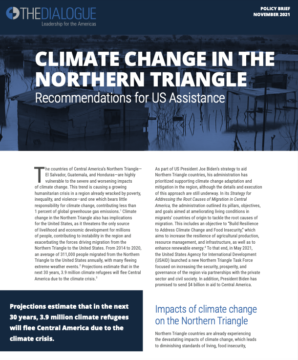
Electromovilidad en Buenos Aires: progreso y desafíos
El evento “Ciudades a la Carga: Electromovilidad en América Latina” explora maneras de reducir las emisiones GEI y la calidad del aire en las ciudades latinoamericanas.
El evento “Ciudades a la Carga: Electromovilidad en América Latina” explora maneras de reducir las emisiones GEI y la calidad del aire en las ciudades latinoamericanas.
On September 9, 2022, the Inter-American Dialogue hosted a webinar entitled “Offshore Wind Energy in LAC – Gauging Speed and Direction.”
As part of his energy and climate campaign promises, Colombian President-elect Gustavo Petro’s intention to halt oil exploration and pilot fracking projects and accelerate the transition to renewable energy raises questions about the direction of energy policy in the country.
On June 28, 2022, the Inter-American Dialogue hosted a webinar entitled “Low-Carbon Hydrogen in LAC – Prospects and Pathways”. This online event sought to explore public and private sector plans to develop the hydrogen industry in the region, specifically focusing on barriers to the production, use, and commercialization of low-carbon hydrogen as well as international and cross-sectoral cooperation strategies to accelerate the implementation of this technology.
On June 14, 2022, the Inter-American Dialogue hosted a webinar presenting the main findings of its Task Force on Climate Change in the Northern Triangle.
Healthy ecosystems are essential for human health and prosperity, yet they are also under pressure from unsustainable development.
This report, informed by the Dialogue’s Task Force on Climate Change in the Northern Triangle, complements the recommendations of the previous report in the series, on themes such as agriculture, water, energy, and finance, with strategic recommendations for US assistance to foster effective and sustainable adaptation, especially through empowering local leadership.
On May 4 and 5, a delegation of task force members traveled to DC to share their insights and recommendations with officials from various US government entities.
On March 24, 2022, the Inter-American Dialogue hosted a private discussion with Luis Vicente León, president of respected polling firm Datanálisis, on recent developments in Venezuela.
Electric vehicles (EV) play an essential role in mitigating transport sector emissions, reducing air pollution, slashing reliance on oil imports, and improving urban mobility. The six nations of Central America covered in this publication—Guatemala, Honduras, El Salvador, Nicaragua, Costa Rica, and Panama—are all at differing stages of developing EV markets.
A Latin America Energy Advisor Q&A featuring experts’ viewpoints on Mexican President López Obrador’s power sector plan.
Rural subsistence farmers, ethnic communities, women, and young people are disproportionately affected by climate change in the Northern Triangle, according to a report by the Inter-American Dialogue, which focuses on adaptation in the region with an emphasis on climate justice and mitigating the impacts on vulnerable communities.
As delegates from around the world finish up their business in Glasgow at the United Nations climate conference, Mexico has not increased its emissions-mitigation goal, as countries pledged under the 2015 Paris Agreement. Its president, Andrés Manuel López Obrador, is doubling down on policies that would make his country the second-largest greenhouse gas emitter in Latin America and the 16th largest in the world, even more of a polluter.
Lisa Viscidi, la directora del programa de Energía, Cambio Climático e Industrias Extractivas, participó el 3 de noviembre, en un webinar sobre la “contra reforma” eléctrica en México organizado por la Universidad Nacional Autónoma de México.
The countries of Central America’s Northern Triangle—El Salvador, Guatemala, and Honduras—are especially vulnerable to the severe and worsening impacts of climate change. This policy brief, the first in a series of three publications, describes the main challenges and provides broad recommendations for the US strategy on climate change adaptation in the region. It is based on inputs from the Task Force on Climate Change in the Northern Triangle, coordinated by the Inter-American Dialogue.

 Video
Video
 Video
Video
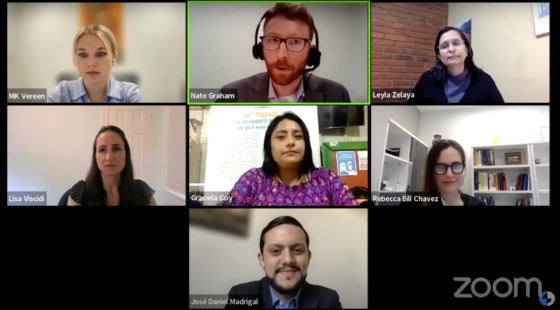 Video
Video
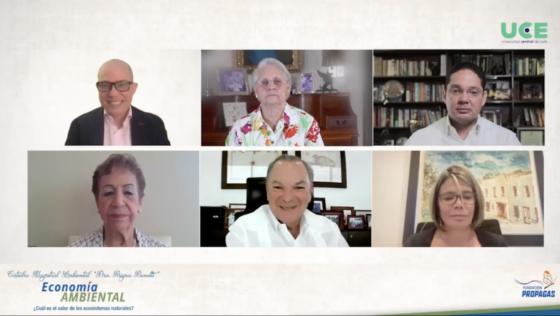 Video
Video
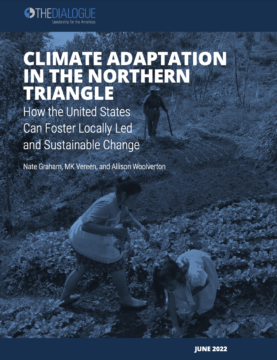
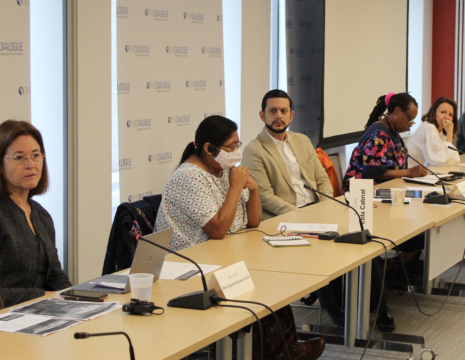
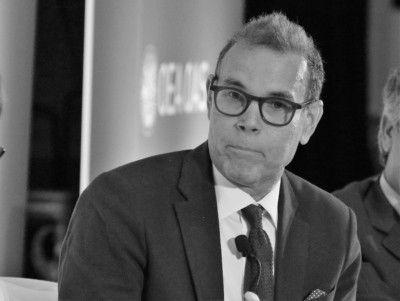
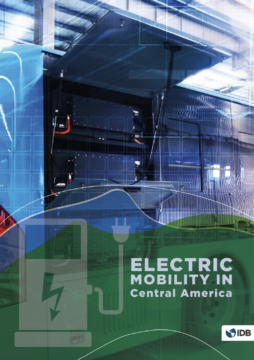
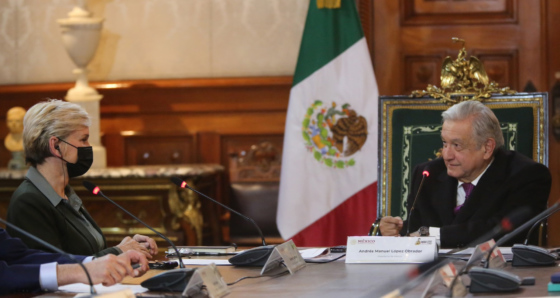
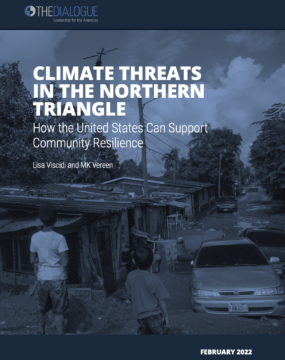
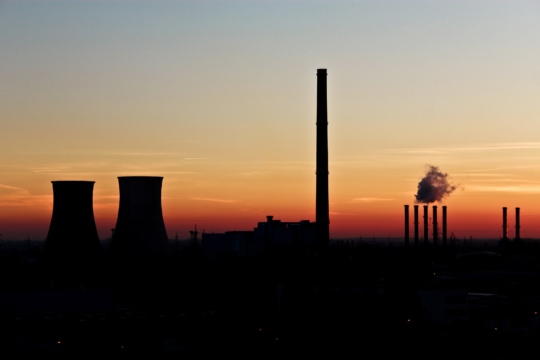
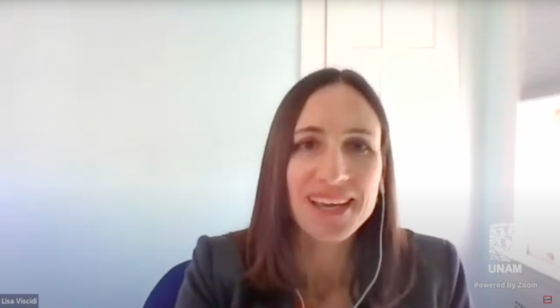 Video
Video
